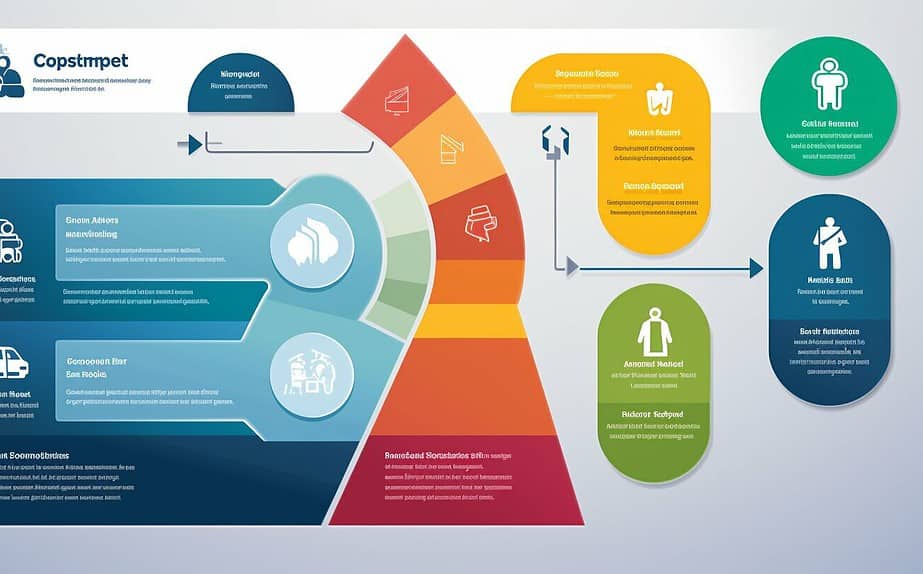Organizing an event can be an exciting and rewarding experience for you and your attendees. However, before you can begin planning all the fun details, it’s essential to obtain the necessary permits and approvals to ensure a safe and compliant event. Event permitting is a critical component of event planning that requires time, patience, and attention to detail. Skipping this critical step can result in fines, delays, and even cancellation of your event.
Event permitting is a complex process that varies depending on the location, size, and type of event you’re planning. Understanding the process, researching the guidelines, gathering the necessary documentation, and navigating the requirements can be overwhelming. But with this complete guide to event permitting, you can ensure a successful and compliant event that meets all the necessary regulations.
Understanding Event Permitting
Event permitting is the process of obtaining the necessary permissions and approvals from local authorities to hold a public event. It typically involves submitting an application that outlines the details of the event and its proposed location, as well as any required supporting documentation.
The requirements for obtaining an event permit can vary widely depending on the location and scope of the event. In general, however, the process involves several key steps:
Understanding Event Permit Requirements
Before you start the permitting process, it’s important to research and familiarize yourself with the specific event permitting guidelines and regulations in your location. These requirements may include obtaining insurance coverage, providing a detailed event plan, submitting an application fee, and securing approval from multiple agencies or departments.
Be sure to also understand any restrictions or special considerations related to your event, such as noise levels, traffic flow, crowd control, and parking requirements.
The Event Permit Application Process
Once you are familiar with the permit requirements, you can begin gathering the necessary documentation and information for your application. This typically includes details about the event itself, such as the date, time, and location; a description of the activities and expected attendance; and any required permits or licenses.
You may also need to provide documentation related to the event’s impact on the local community, such as information on traffic flow and parking, security measures, and noise levels.
Once you have gathered all the necessary information, you can submit your application and required documentation to the appropriate local authorities. The event permitting process typically involves multiple review stages, so be prepared to provide additional information or make changes to your application as needed.
Working with Local Authorities
Throughout the event permitting process, it’s important to establish and maintain positive relationships with the local authorities involved. This may involve regular communication to ensure everyone is on the same page and that any concerns or issues are addressed in a timely manner.
Engaging in collaborative problem-solving with local authorities can also help ensure a smooth permitting process and increase the likelihood of a successful event.
Researching Event Permitting Guidelines
Before submitting an event permit application, it is essential to research the specific guidelines and regulations for event permitting in your location. This will ensure that you are well-informed and prepared to comply with any restrictions or special considerations that may apply to your event.
A good place to start your research is with your local government’s website, which may have a dedicated section on event permitting or a comprehensive guide detailing the process and requirements. You can also contact the relevant department or office directly and speak to a representative who can provide more detailed information and answer any questions you may have.
Additional Resources
| Resource | Description |
|---|---|
| Event Industry Association | An international association providing resources and education for event professionals, including information on event permitting guidelines and regulations. |
| Event Safety Alliance | A non-profit organization focused on promoting safety and risk management in the event industry, with resources and tools for event permitting compliance. |
Gathering Necessary Documentation
Once you have identified the requirements for an event permit in your location, it is important to gather all the necessary documentation and information for your application. This will help ensure a smooth and timely process for obtaining your event permit.
Depending on the type of event and location, the required documentation may include:
| Document | Description |
|---|---|
| Event application form | This is the main form for your event permit application and will require details such as event dates, times, and location, as well as a description of your event. |
| Site plan | A detailed plan of the event site, showing the layout of all facilities, equipment and structures, as well as the location of nearby businesses and residences. |
| Proof of insurance | Most locations require event organizers to have a certain level of insurance coverage for liability and property damage. |
| Vendor permits | If you plan to have vendors at your event, they may need to obtain their own permits in order to sell food or other products. |
| Alcohol permits | If you plan to serve alcohol at your event, you may need to obtain a separate permit or license. |
Be sure to carefully review the documentation checklist provided by your local government or event permit authority to make sure you have everything required for your specific event.
Navigating the Event Permitting Process
Once you’ve gathered all the necessary documentation, it’s time to navigate the event permitting process. This can be a multi-step process that varies depending on your location and the type of event you are planning. It’s important to familiarize yourself with the process early on to ensure you have enough time to complete all the required steps.
The first step is to fill out the event permit application, which typically requires information on the date, time, location, and nature of your event. You may also need to provide details on the number of attendees, any equipment or structures you plan to use, and any special considerations or requests.
| Tip: | Make sure to review your application carefully before submitting it. Check for any errors or omissions that may delay the processing of your permit. |
|---|
Once your application is submitted, you may be required to wait for approval from local authorities. This process can take several weeks or months, so it’s important to plan accordingly. Depending on the type of event and the specific regulations in your location, you may also need to submit additional documentation or follow-up with authorities to ensure your permit is approved.
After your permit is approved, you will likely need to pay any associated permit fees and may be required to attend an inspection, which can ensure your event is in compliance with safety and other regulations. During this process, make sure to take notes and ask any questions you may have. It’s also important to maintain open lines of communication with local authorities and respond promptly to any requests or concerns they may have.
Tip:
Consider hiring an event planning professional to help you navigate the event permitting process. They can help ensure you have all the necessary documentation and can assist you in communicating with local authorities.
Understanding Event Permit Fees
When applying for an event permit, it’s important to understand the various fees associated with the process. These fees can vary depending on your location and the size and complexity of your event. Here are some common fees you may encounter:
| Fee | Description |
|---|---|
| Application fee | This fee is typically required when submitting your event permit application. It covers the cost of processing your application and may be non-refundable. |
| Inspection fee | Once your application has been reviewed and approved, an inspection fee may be required. This covers the cost of having an inspector evaluate your event site to ensure it meets safety and compliance standards. |
| Special permit fees | If your event requires special permits, such as a liquor license or noise permit, additional fees may apply. |
| Cleanup and restoration fees | If your event causes any damage to the event site, you may be responsible for covering the cost of cleanup and restoration. |
It’s important to factor these fees into your overall event budget to avoid any surprises later on. Be sure to carefully review the event permit requirements and associated fees for your location and event type.
Complying with Event Permit Regulations
Once an event permit is obtained, it is crucial to comply with all regulations and guidelines set forth by local authorities. Failure to do so can result in fines, revocation of the permit, and even legal action.
Key Considerations
There are several key considerations to keep in mind when complying with event permit regulations:
- Safety measures: Ensure that all necessary safety measures are in place, such as proper fencing, emergency exits, and fire extinguishers.
- Noise restrictions: Make sure to adhere to any noise restrictions, including specific decibel levels or designated quiet hours.
- Crowd control: Plan ahead for crowd control, including staffing and security measures to prevent overcrowding.
It is important to review the specific regulations and guidelines that apply to your event and make sure all necessary measures are taken to comply.
Inspections and Follow-Ups
Local authorities may conduct inspections or follow-ups to ensure compliance with event permit regulations. It is important to be prepared for these visits and have all necessary documentation and safety measures in place.
If any issues or violations are identified during these inspections, it is important to take immediate action to address them and come into compliance as soon as possible.
Understanding Event Permit Fees
When planning an event, it’s important to factor in the cost of obtaining an event permit. The specific cost will vary depending on factors such as the size of the event, the location, and the requirements of local authorities. Here’s a breakdown of some of the common fees to expect:
| Fee Type | Description |
|---|---|
| Application Fee | A fee charged for submitting an event permit application. Usually a non-refundable fee that covers administrative costs. |
| Inspection Fee | Some local authorities may require an inspection fee to cover costs associated with inspecting the event site and ensuring compliance with regulations. This may be a one-time or recurring fee. |
| Security Fee | Depending on the size and nature of the event, a security fee may be charged to cover the cost of hiring additional security personnel. |
| Cleaning Fee | If the event site requires additional cleaning, a fee may be charged to cover the cost of cleanup services. |
| Permit Amendment Fee | If changes are made to the event plan after the permit has been issued, a fee may be charged to amend the permit accordingly. |
It’s important to note that some local authorities may also charge additional fees for use of certain facilities or services, such as electrical hookups or parking. Additionally, insurance coverage may be required, which can also add to the overall cost of obtaining an event permit.
Be sure to research and budget accordingly for all potential event permit fees to avoid any surprises or delays in the process.
Engaging with Local Authorities
Engaging with local authorities is a crucial aspect of the event permitting process. Building a positive and effective relationship with these authorities can make the process smoother and increase the chances of obtaining a permit. Here are some tips to help you engage with local authorities:
- Be respectful: Local authorities are an integral part of the community and their job is to ensure the safety and well-being of the community. Show them respect and gratitude for their service.
- Communicate clearly: Clearly communicate your event plans and needs to local authorities. Be transparent, honest, and open to feedback.
- Be responsive: Be prompt in responding to any questions or concerns raised by local authorities. Address their concerns and provide solutions.
- Be proactive: Do your research and anticipate any potential issues that local authorities may bring up. Proactively address these issues in your permit application and communicate your solutions to the authorities.
Remember, local authorities are there to help ensure your event is safe and successful. Engaging with them in a positive and collaborative way can pave the way for a successful event.
Planning for Potential Challenges
While the event permitting process can be smooth and straightforward, it’s important to anticipate and plan for potential obstacles that may arise. By considering these challenges in advance, you can better prepare and mitigate any negative impacts on your event.
1. Limited Availability of Permits
In some locations, event permits may be limited due to a high volume of events or limited resources. It is important to research the availability of permits in your area and plan accordingly. Consider alternative dates or venues that may have more availability.
2. Unexpected Changes in Regulations
Event permitting regulations can be subject to change, sometimes without much advance notice. Stay updated on any potential changes and be prepared to adjust your plans accordingly. It’s also important to communicate any changes to stakeholders involved in your event.
3. Objections from Local Residents or Businesses
Local residents or businesses may raise objections to your event due to concerns about noise, traffic, or other disruptions. It’s important to work proactively to address these concerns by reaching out to affected parties and developing solutions that meet everyone’s needs.
By preparing for potential challenges in the event permitting process, you can help ensure a successful and compliant event.
Tips for Successful Event Permitting
Obtaining an event permit can be a complex and time-consuming process, but with the following tips, you can navigate the process more smoothly and ensure a successful outcome:
- Do your research: Before submitting an event permit application, make sure you have thoroughly researched the specific guidelines and requirements for your location. This will ensure that you are fully prepared and can avoid any surprises down the line.
- Stay organized: Keep track of all necessary documents, deadlines, and communication with local authorities in a centralized location to avoid confusion and mistakes.
- Be proactive: Don’t wait until the last minute to submit your application or address any concerns raised by local authorities. Take a proactive approach to ensure a smooth and timely process.
- Communicate effectively: Maintain open lines of communication with all relevant parties, including local authorities, vendors, and event attendees. Respond promptly to any inquiries or requests for information.
- Be flexible: Be prepared to make adjustments to your event plans to comply with any regulations or restrictions imposed by local authorities. Flexibility and willingness to collaborate can go a long way in ensuring a successful outcome.
By following these tips, you can increase your chances of obtaining an event permit and ensure that your event is a success.
Case Studies: Event Permitting Success Stories
Real-life examples demonstrate how effective event permitting can lead to successful events that comply with regulations and satisfy stakeholders. Here are two examples:
Music Festival in Downtown
“Our team organized a two-day music festival in the downtown area, which we knew could pose challenges in terms of noise and crowd control. We applied for an event permit well in advance and conducted extensive research on local regulations and guidelines. We met with the relevant departments to get their input on how to address potential issues. We had a comprehensive plan that covered everything from security to first aid, and we communicated it to all the involved parties. The city council approved our permit, and we had a successful event that drew a big crowd without any incidents.”
-Event Organizer
Charity Walkathon in the Park
“We were organizing a charity walkathon in a local park with a large lake. We applied for an event permit, and during the review process, we found out about a new regulation that required us to obtain a permit from the state’s water authority to use the lake. We didn’t have much time, but we reached out to the authorities and explained our situation. They were helpful and expedited the process for us. We also had to ensure that we didn’t damage the park’s vegetation or disrupt its wildlife. We covered all the costs and obtained the necessary approvals. Our event was a great success, raising significant funds for the charity.”
-Charity Organizer
Tips for Successful Event Permitting
Obtaining an event permit can be a daunting task, but by following a few tips and best practices, you can increase your chances of success.
Be proactive and start early
Don’t wait until the last minute to start the event permitting process. Give yourself plenty of time to research guidelines, gather documentation, and navigate the necessary steps. Starting early can also help you avoid unexpected delays or obstacles.
Stay organized
Keeping track of all the necessary paperwork, deadlines, and requirements can be overwhelming. Use a checklist or spreadsheet to stay organized and ensure you don’t miss anything important.
Communicate effectively
Effective communication is key to a successful event permitting process. Reach out to local authorities early on, ask questions, and establish a positive working relationship. Keep all parties informed throughout the process and be responsive to any requests or concerns.
Consider hiring a professional
If you’re feeling overwhelmed or unsure of the process, consider hiring a professional event planner or permit expediter. They can help guide you through the process and ensure everything is in order.
Be prepared to make changes
Even with careful planning, things can still go wrong. Be prepared to make changes or modifications to your event plans if necessary to comply with regulations or address concerns from local authorities or residents.
By following these tips, you can increase your chances of a successful event permitting process and ensure a safe and compliant event.




